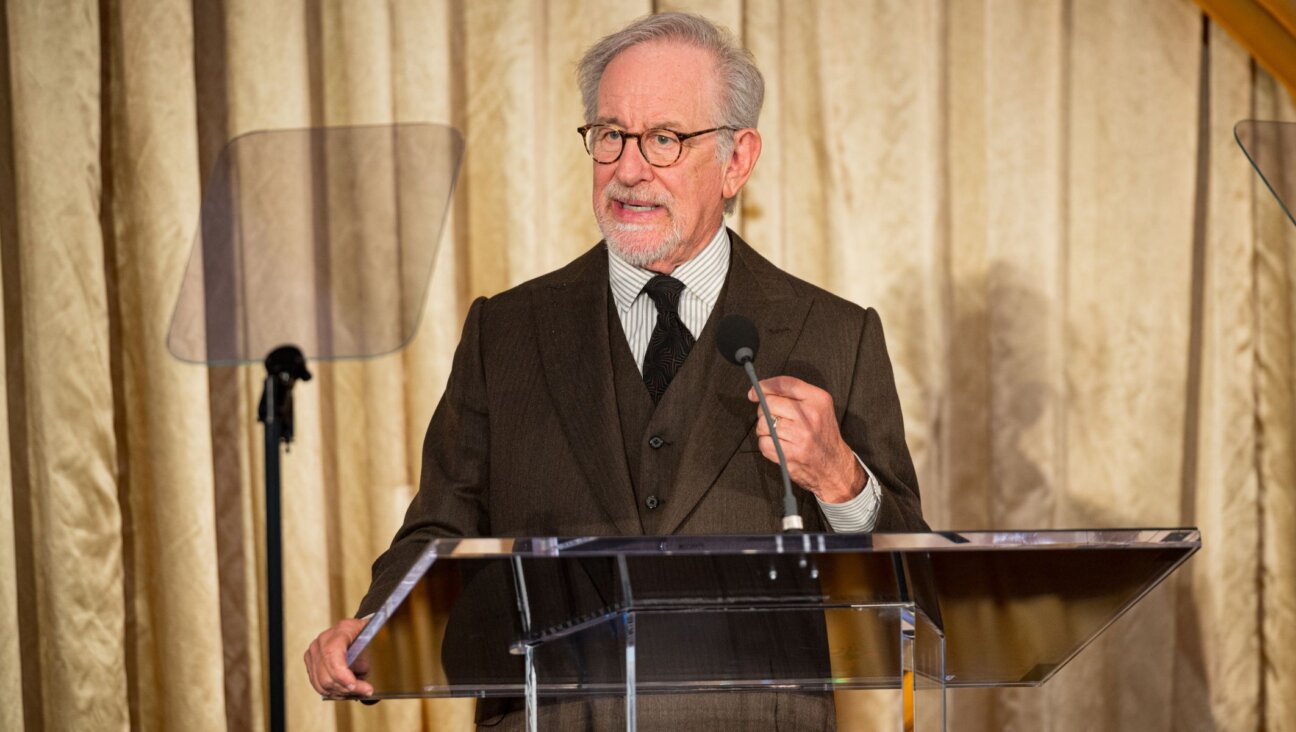Our Lives Of Sarah
A black-clad young man interrogated my wife and me in the foyer of Istanbul’s Neve Shalom synagogue, exactly three years ago.
I thought about our visit to Turkey when Neve Shalom and another synagogue a few miles away, Beth Israel, were bombed this past Shabbat during the crowded morning services. At least 25 died.
I remember that the security guy questioned me pretty intensely. When the same synagogue was bombed in 1986, the killers were Arabs pretending to be journalists. Maybe it was my telling him that I was a journalist that made him particularly suspicious. One of his queries, as I recall it now, prompts reflections on why the pair of truck bombs — which killed mostly Turkish Muslims outside on the narrow streets — awakens a special dread among Diaspora Jews.
First he wanted to see our passports, but we explained that because it was Shabbat we hadn’t been able to carry them. This raised his eyebrows. Evidently he wasn’t accustomed to visitors who refrain from carrying their belongings on the Sabbath, as Jewish law prescribes. Neve Shalom is a “traditional” congregation, meaning that levels of observance among its members are diverse. He started asking questions. What we were doing in Istanbul? Where were we from? Did we belong to a synagogue at home? And what did we do there?
“We pray,” I remember answering.
Finally he asked, as if casually, “And what is the parsha” — the week’s Torah reading?
“Chayei Sarah,” I responded, after briefly sweating. Chayei Sarah also happens to be the parsha this week — as Jews worldwide seek to assimilate the meaning of renewed anti-Jewish violence in Turkey.
“What is the parsha about?”, he continued — he was thorough, all right.
I would have been embarrassed to stumble on this one. I was in Turkey to research a biography of the patriarch Abraham, and we were passing through Istanbul on our way to Harran, in southeastern Turkey near the Syrian border, where Abraham initiated his career of proselytizing on behalf of the One God. I answered that Chayei Sarah — “The Life of Sarah” — recounts the death of Abraham’s wife, and also that of Abraham’s problematic first son, Ishmael.
Hardly does a Shabbat go by when the parsha doesn’t seem to be eerily commenting on that very week’s most prominent events. This week was no exception.
The Turkish news service claimed to have proof, gathered from tissues of the suicide bombers, that the killers were not Turks, but Arabs. Chayei Sarah speaks of Ishmael’s descendants, held by Jews and Muslims alike to be progenitors of the Arab peoples. Through them, Ishmael will “fall in the face of all his brothers.” Today we would say that Abraham’s elder son will “get in our face,” but otherwise the idiom is strikingly modern.
In the parsha of two weeks ago, an angel tells Ishmael’s mother, Hagar: “[Ishmael] will be a wild ass of a man; his hand [will be] against everyone, and everyone’s hand [will be] against him.” Classical rabbinic commentaries on the Torah’s prophetic verses here read like notes for a newspaper editorial about relations today between the Arab and Western worlds.
“And [Ishmael] will be rebellious among mankind,” the ancient Aramaic translation of Onkelos interprets. “He will be in need of everyone else, and at the same time mankind will be in need of him.”
On the phrase “everyone’s hand against him,” Rashi says, “All will hate him and attack him.” Another medieval exegete, Nachmanides, notes that Ishmael’s children will oppress “the seed of Abraham and Sarah with all manners of affliction.”
Those afflictions are well known, but car-bomb attacks on Jews have until now usually been confined to Israel. While painful enough, this has given us in the Diaspora — let’s be frank — a certain comfort. We have assumed that in countries like America, we are safe.
Hence the disquiet inspired by the Istanbul bombings. Turkey may sound exotic. Harran was certainly a strange place to visit, a huge, empty mud-dump of a place ringed with odd beehive-shaped houses where the architecture hasn’t changed much since Abraham lived there. But Jewish life in Istanbul is familiar and contemporary. The city has the tastiest and most stylish kosher restaurant I’ve been to, a place called Carne, and it’s better and more reasonably priced than the best in Manhattan.
Shabbat morning services at Neve Shalom are not exotic at all, though the rabbis did wear interesting white hexagonal hats with pompoms. Everyone was beautifully attired in Western fashion. The women sat separately but wore pants, not skirts, and none wore a head covering — entirely modern. A microphone was used.
The impression was of a prosperous Conservative synagogue in suburban America. It is the familiarity of the scene that haunts me, with its suggestion that what happened there could happen here. Chayei Sarah hints at this worrisome thought.
The parsha’s rendering of Sarah’s death appears in the second verse, juxtaposed with the story that concludes last week’s reading: the binding of Isaac. Rashi asks why Isaac’s near-death experience should be placed side-by-side with his mother’s passing. He explains that when Sarah heard that her son had come so close to being slaughtered, “her soul flew out of her and she died.”
That is, she died of shock at realizing the insecurity of our hold on life. We understand how she felt, we who are left bewildered at the death of fellow Jews, but much more so at the reminder of the tenuousness of our own personal safety, even in America. The Diaspora that once felt so isolated from truck bombs and the like is no longer.
David Klinghoffer’s new book is The Discovery of God: Abraham and the Birth of Monotheism (Doubleday).















